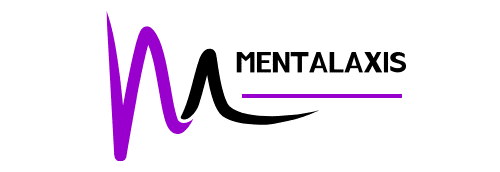How Can Property Managers Leverage IoT for Energy Efficiency?

In the realm of real estate and property management, the concept of ‘smart’ buildings has emerged as a revolutionary trend offering numerous benefits. Property managers are increasingly turning to innovative technologies like the Internet of Things (IoT) to improve energy efficiency, reduce costs, streamline operations, and enhance security. IoT, with its connected devices and sensors, provides property managers with real-time data, enabling them to make informed decisions and optimize various aspects of building operations.
IoT: A Game-Changer in Property Management
The Internet of Things, or IoT, is a network of physical devices embedded with sensors, software, and other technologies to connect and exchange data over the internet. These devices, which range from simple sensors to sophisticated systems, offer a wealth of possibilities for real estate and property managers.
En parallèle : How to Optimize Residential Property Portfolios in the Face of Climate Change?
IoT devices in a building can monitor energy usage, detect maintenance issues, control building systems, and provide property managers with a wealth of actionable data. The technology can automate tasks, improving efficiency and freeing up time for property managers to focus on more strategic tasks.
Moreover, IoT brings a new level of transparency to property management, providing both managers and tenants with real-time insights, from energy use to space utilization, which can be crucial for making decisions on energy efficiency and cost savings.
Lire également : What Is the Role of Proptech in Streamlining Estate Management Processes?
The Role of IoT in Energy Management
Energy management is one aspect of property management where IoT can have a significant impact. The use of IoT devices for energy management in buildings is not just a futuristic concept, but a real and viable solution that property managers can leverage.
By integrating IoT devices and sensors into a building’s infrastructure, property managers can continuously monitor energy consumption patterns across various building systems. This data can then be analyzed to identify wasteful energy practices and inefficiencies.
For example, IoT-enabled smart thermostats can adjust temperature settings based on occupancy patterns, thereby preventing energy waste. Similarly, IoT sensors can detect when rooms are unoccupied and automatically turn off lights or other devices, further improving energy efficiency.
Enhancing Building Security with IoT
Another critical area where IoT brings significant benefits is building security. Implementing IoT devices can drastically enhance the security measures in place, providing a safe environment for tenants and protecting the property from potential threats.
IoT devices, such as smart locks and security cameras, can be remotely controlled and monitored. This allows property managers to manage access to the building, track who is coming and going, and respond promptly to any security incidents.
Moreover, with IoT-enabled security systems, property managers can receive real-time alerts on their devices if there’s a security breach. This quick response time can prevent potential property damage or loss, and ensure the safety of the occupants.
Automating Property Management Tasks with IoT
Automation is another major benefit of IoT for property managers. By integrating IoT solutions into their operations, property managers can automate a range of tasks, thereby improving efficiency and saving time.
IoT devices can automate tasks such as managing building systems, monitoring energy usage, tracking occupancy rates, and even scheduling maintenance tasks. By automating these routine tasks, property managers can focus more on strategic aspects of managing the property, such as tenant satisfaction and cost reduction.
For instance, IoT devices can monitor the performance of building systems such as HVAC and lighting, and notify property managers when maintenance is required. This proactive approach can prevent system failures, minimize downtime, and save on repair costs.
Implementing IoT in Property Management: Considerations
While IoT offers immense benefits for property management, it’s important to carefully consider a few factors before implementing it. IoT requires a sizable investment in devices, software, and infrastructure. Therefore, property managers need to evaluate the cost-effectiveness of IoT solutions.
Data security is another critical aspect to consider. As IoT devices generate and transmit large volumes of data, property managers need to ensure that this data is securely stored and transmitted. Implementing robust security measures can prevent data breaches and protect the privacy of tenants.
In conclusion, IoT is transforming the world of property management, enabling managers to optimize energy usage, enhance security, automate tasks, and make informed decisions based on real-time data. By leveraging IoT, property managers can not only improve the efficiency and performance of their buildings but also provide a better living environment for tenants.
IoT for Indoor Air Quality Management
As we delve further into the applications of IoT in property management, another important consideration comes to light: air quality management. Indoor air quality is a crucial factor in the overall wellness and comfort of tenants. Thankfully, IoT devices can considerably aid in managing and improving air quality in real estate properties.
IoT sensors can monitor indoor air quality, assessing variables like humidity, temperature, and the presence of harmful pollutants. This real-time monitoring allows property managers to ensure optimal conditions are maintained, enhancing the comfort and health of residents or tenants.
Here’s how it works: IoT-enabled HVAC systems can be programmed to adjust according to the data provided by air quality sensors. For instance, if the sensors detect high humidity levels, the HVAC system can automatically adjust to reduce moisture levels. Not only does this maintain a comfortable living environment, but it also aids in energy efficiency by preventing overuse or misuse of HVAC systems.
Moreover, IoT sensors can detect harmful pollutants or gases, such as carbon monoxide, and alert property managers, allowing them to take immediate action to ensure tenant safety. This proactive approach to air quality management can significantly enhance the reputation of a property, making it more appealing to potential tenants.
The Future of Property Management with IoT
As we move further into the digital age, the role of IoT in property management is set to continue growing. Property managers who leverage this technology can reap benefits such as improved energy efficiency, enhanced security, and better overall management of their properties.
In terms of energy management, IoT is expected to play a pivotal role. Advanced IoT sensors will provide even more detailed data on energy consumption, enabling property managers to identify and rectify inefficiencies more effectively. In turn, this will lead to significant cost savings and a reduced environmental footprint.
Building security is another area where the impact of IoT will be profound. Future IoT devices will offer more advanced security features, such as facial recognition and motion detection, to provide unparalleled security solutions.
As for air quality management, advancements in IoT technology will enable more precise monitoring and control of indoor conditions, thereby enhancing the comfort and health of tenants.
However, as the use of IoT in property management increases, it’s essential for property managers to remain vigilant about potential challenges such as data security. As more data is generated and transmitted, robust security measures will be crucial in protecting the privacy of tenants and the integrity of the property management systems.
In conclusion, IoT represents a powerful tool for property managers. It offers a wealth of opportunities to improve energy efficiency, enhance security, automate tasks, and make data-driven decisions. By embracing the IoT revolution, property managers can stay ahead of the curve, offering superior services that cater to the evolving needs of tenants.
